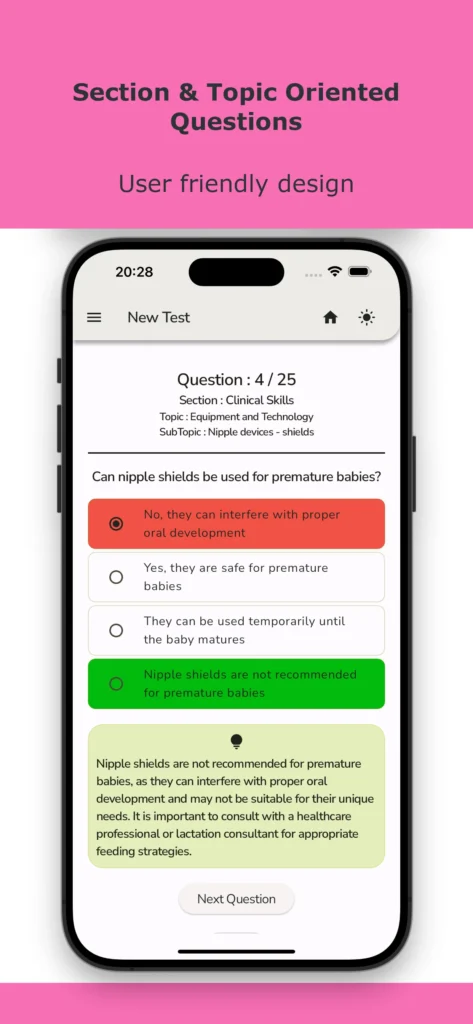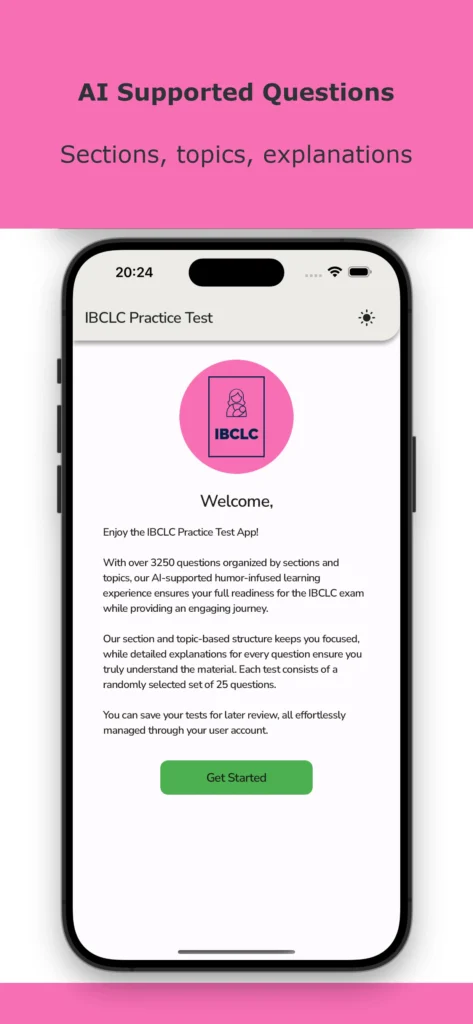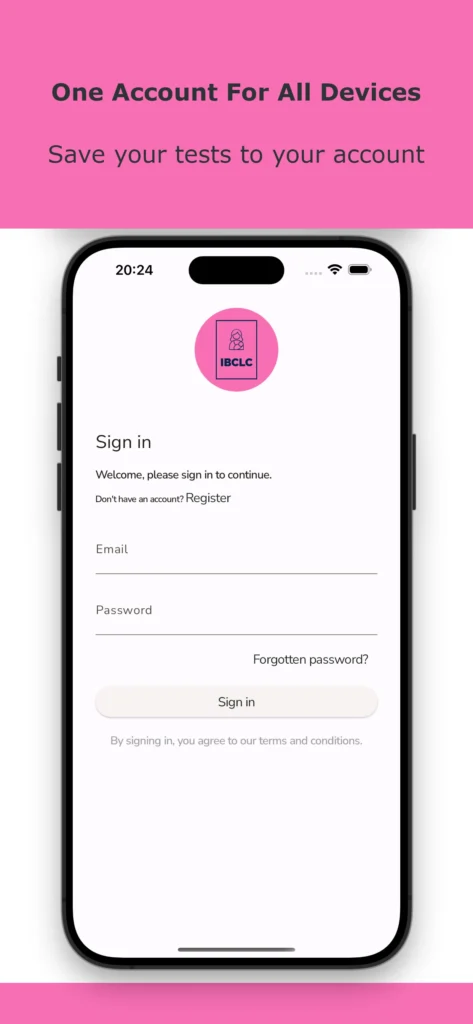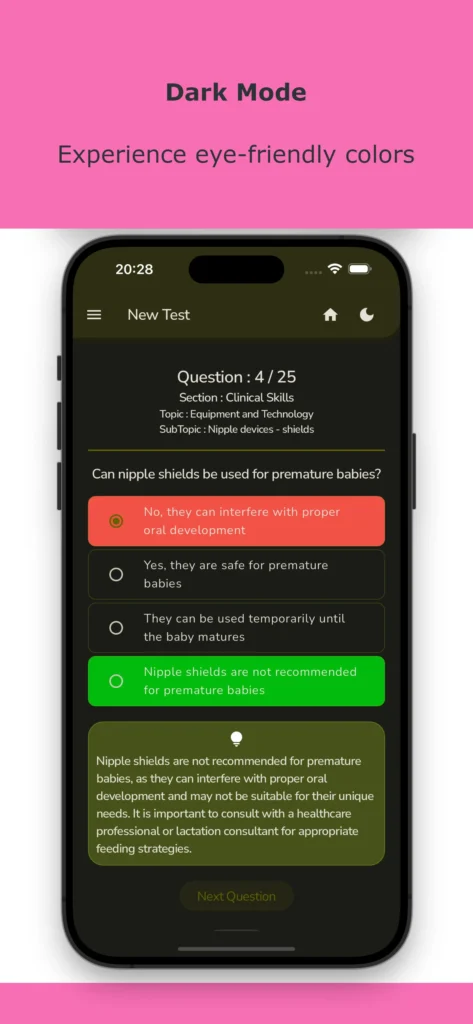Introduction
Welcome to our comprehensive guide on understanding the difference between CLC and IBCLC. If you’re a new parent or someone interested in lactation consulting, it’s important to know the distinctions between these two roles. In this section, we’ll provide an overview of CLC and IBCLC and highlight the key differences between them.
CLC stands for Certified Lactation Counselor, while IBCLC stands for International Board Certified Lactation Consultant. Both roles play a crucial part in supporting breastfeeding mothers and their infants, but they differ in terms of training, certification, and scope of practice.
A Certified Lactation Counselor (CLC) is a professional who has completed a training program to provide basic breastfeeding support and education. CLCs are trained to assist with common breastfeeding challenges, such as latching difficulties, milk supply issues, and positioning problems. They work in various settings, including hospitals, clinics, and community organizations.
On the other hand, an International Board Certified Lactation Consultant (IBCLC) is a healthcare professional with advanced training and certification in lactation consulting. IBCLCs have a broader scope of practice and can provide comprehensive lactation care, including assessing and managing complex breastfeeding issues. They work in diverse settings, such as hospitals, private practices, and public health agencies.
The primary difference between CLC and IBCLC lies in the level of training and certification. While both roles require specialized knowledge in lactation, IBCLCs undergo a more extensive and rigorous training process. IBCLCs must meet specific educational requirements, complete clinical practice hours, and pass a comprehensive examination administered by the International Board of Lactation Consultant Examiners (IBLCE).
It’s important to note that the term ‘IBCLC’ is a protected title, and only individuals who have met the requirements set by the IBLCE can use this designation. This ensures that IBCLCs possess the necessary knowledge and skills to provide expert lactation support.
When seeking lactation support, it’s essential to consider your specific needs and the complexity of your breastfeeding situation. CLCs are a valuable resource for basic breastfeeding support and education, while IBCLCs are equipped to handle more complex cases and provide specialized care.
In the following sections, we’ll delve deeper into the training and certification requirements for CLCs and IBCLCs, as well as the scope of practice for each role. We’ll also explore the benefits of seeking support from both CLCs and IBCLCs, as they can work collaboratively to provide comprehensive lactation care.
What is a CLC?
A Certified Lactation Counselor (CLC) is a healthcare professional who specializes in providing support and guidance to breastfeeding mothers. CLCs are trained to assist women with breastfeeding challenges and help them establish a successful breastfeeding relationship with their infants.
CLCs undergo comprehensive training programs that cover various aspects of lactation, including anatomy and physiology of the breast, breastfeeding techniques, common breastfeeding problems, and counseling skills. They are equipped with the knowledge and skills to address common breastfeeding issues such as latching difficulties, low milk supply, engorgement, and nipple pain.
One of the key roles of a CLC is to educate and empower mothers by providing evidence-based information and practical tips on breastfeeding. They work closely with mothers to develop personalized breastfeeding plans and provide ongoing support throughout the breastfeeding journey.
CLCs also play a crucial role in promoting breastfeeding in the community. They conduct breastfeeding classes and workshops, participate in community outreach programs, and collaborate with healthcare providers to raise awareness about the benefits of breastfeeding.
It’s important to note that a CLC is not the same as an International Board Certified Lactation Consultant (IBCLC). While both CLCs and IBCLCs provide lactation support, there are some key differences between the two.
Firstly, the certification process for CLCs and IBCLCs differs. CLCs undergo a shorter training program, typically lasting a few days to a few weeks, whereas IBCLCs undergo a more extensive and rigorous training program, which includes a minimum of 90 hours of lactation-specific education, clinical experience, and passing a comprehensive exam.
Secondly, the scope of practice for CLCs and IBCLCs may vary. IBCLCs have a broader scope of practice and can provide more advanced lactation support, including working with complex breastfeeding issues and providing lactation care in medical settings.
In summary, a CLC is a healthcare professional who specializes in providing lactation support and education to breastfeeding mothers. They undergo comprehensive training and play a crucial role in promoting breastfeeding in the community. While both CLCs and IBCLCs provide lactation support, IBCLCs have a more extensive training and a broader scope of practice. If you are seeking lactation support, it’s important to consider your specific needs and choose the appropriate professional based on their qualifications and expertise.
What is an IBCLC?
An IBCLC, or International Board Certified Lactation Consultant, is a healthcare professional who specializes in providing expert lactation support and guidance to breastfeeding individuals and their families. IBCLCs are highly trained and have extensive knowledge in lactation and breastfeeding management.
To become an IBCLC, individuals must meet specific educational requirements, complete clinical practice hours, and pass a rigorous examination administered by the International Board of Lactation Consultant Examiners (IBLCE). This certification ensures that IBCLCs have the necessary skills and knowledge to assist with a wide range of breastfeeding challenges and provide evidence-based care.
IBCLCs work in various healthcare settings, including hospitals, clinics, private practices, and community organizations. They play a crucial role in supporting breastfeeding individuals and promoting successful breastfeeding outcomes.
Unlike a Certified Lactation Counselor (CLC), who typically completes a shorter training program, an IBCLC has a more comprehensive and in-depth understanding of lactation and breastfeeding. IBCLCs are equipped to handle complex breastfeeding issues, such as low milk supply, latch difficulties, tongue-tie, and breastfeeding challenges related to medical conditions.
IBCLCs provide personalized care and support to breastfeeding individuals and their families. They assess breastfeeding techniques, provide education on breastfeeding positions and latch, offer guidance on overcoming common breastfeeding challenges, and address concerns related to milk supply, infant weight gain, and breastfeeding pain.
In addition to their clinical expertise, IBCLCs also have a deep understanding of the emotional and psychological aspects of breastfeeding. They provide compassionate support and help individuals navigate the emotional journey of breastfeeding, including addressing concerns about bonding, postpartum depression, and breastfeeding difficulties.
IBCLCs work collaboratively with other healthcare professionals, such as pediatricians, obstetricians, and nurses, to ensure comprehensive care for breastfeeding individuals. They also stay updated on the latest research and evidence-based practices in lactation and breastfeeding, allowing them to provide the most current and effective care.
If you are seeking lactation support, consulting with an IBCLC can provide you with expert guidance and assistance throughout your breastfeeding journey. Their specialized knowledge and experience can help you overcome challenges, establish a successful breastfeeding relationship, and ensure the well-being of both you and your baby.
Key Differences Between CLC and IBCLC
What is a CLC?
A Certified Lactation Counselor (CLC) is a healthcare professional who specializes in providing support and guidance to breastfeeding mothers. CLCs undergo training and certification to develop the necessary skills and knowledge to assist women with breastfeeding.
What is an IBCLC?
An International Board Certified Lactation Consultant (IBCLC) is a healthcare professional who has achieved the highest level of certification in lactation consulting. IBCLCs have extensive training and experience in breastfeeding management and are qualified to provide comprehensive lactation care.
Training and Certification
The main difference between a CLC and an IBCLC lies in their training and certification requirements. CLCs undergo a shorter training program, typically lasting a few days to a few weeks, and receive certification upon completion. On the other hand, IBCLCs must complete a more extensive and rigorous training program, which includes a minimum of 90 hours of lactation-specific education, clinical practice hours, and passing a comprehensive exam.
Scope of Practice
While both CLCs and IBCLCs provide support and guidance to breastfeeding mothers, their scope of practice differs. CLCs primarily focus on basic breastfeeding support, including latch assessment, positioning, and basic troubleshooting. They are trained to address common breastfeeding challenges and provide education and counseling to mothers.
IBCLCs, on the other hand, have a broader scope of practice. They are qualified to handle complex breastfeeding issues, such as tongue tie, low milk supply, breastfeeding difficulties related to medical conditions, and more. IBCLCs are also trained to work with infants in special care units and provide lactation support in challenging situations.
Expertise and Experience
Due to the differences in training and certification requirements, IBCLCs generally have more extensive expertise and experience in lactation consulting compared to CLCs. IBCLCs are required to complete a minimum number of clinical practice hours, which allows them to gain hands-on experience in various breastfeeding situations. This experience equips them with a deeper understanding of breastfeeding challenges and the ability to provide specialized care.
E-A-T and Credibility
When seeking lactation support, it is important to consider the expertise, experience, and credibility of the professional. IBCLCs, with their comprehensive training and certification, are recognized as experts in the field of lactation consulting. Their extensive knowledge and experience contribute to their credibility and ability to provide evidence-based care. CLCs, while still valuable in providing basic breastfeeding support, may not have the same level of expertise and experience as IBCLCs.
Conclusion
In summary, the key differences between CLCs and IBCLCs lie in their training, certification, scope of practice, expertise, and experience. CLCs undergo shorter training and primarily focus on basic breastfeeding support, while IBCLCs undergo more extensive training and have a broader scope of practice. IBCLCs generally have more expertise and experience in lactation consulting, making them the go-to professionals for complex breastfeeding issues. When seeking lactation support, it is important to consider the specific needs and challenges you may have and choose the appropriate professional accordingly.
Choosing the Right Lactation Consultant
What is the Difference Between a Lactation Consultant and an IBCLC?
When it comes to seeking support for breastfeeding, it’s important to understand the difference between a lactation consultant (LC) and an International Board Certified Lactation Consultant (IBCLC). While both professionals are trained to assist with breastfeeding, there are some key distinctions.
A lactation consultant is a broad term that refers to any individual who provides support and guidance to breastfeeding mothers. They may have different levels of training and certification, and their expertise can vary. On the other hand, an IBCLC is a lactation consultant who has obtained certification from the International Board of Lactation Consultant Examiners (IBLCE). This certification requires extensive education, clinical experience, and passing a rigorous exam.
So, while all IBCLCs are lactation consultants, not all lactation consultants are IBCLCs. Choosing an IBCLC ensures that you are working with a highly qualified professional who has met the rigorous standards set by the IBLCE.
Why Choose an IBCLC?
When it comes to breastfeeding support, an IBCLC brings a higher level of expertise and knowledge to the table. Here are a few reasons why choosing an IBCLC is beneficial:
- Extensive Training: IBCLCs undergo comprehensive training in lactation and breastfeeding management. They have a deep understanding of the anatomy and physiology of breastfeeding, as well as the challenges that can arise.
- Clinical Experience: IBCLCs have completed a minimum number of supervised clinical hours, allowing them to gain hands-on experience in assisting breastfeeding mothers.
- Evidence-Based Practice: IBCLCs stay up-to-date with the latest research and evidence-based practices in lactation. They can provide accurate and current information to help you make informed decisions.
- Individualized Support: IBCLCs take a holistic approach to breastfeeding support. They consider the unique needs and circumstances of each mother and baby, providing personalized guidance and solutions.
How to Find an IBCLC
If you’re looking for an IBCLC, there are a few resources you can use:
- International Lactation Consultant Association (ILCA): ILCA has a directory of IBCLCs that you can search by location. This allows you to find IBCLCs in your area who are members of the association.
- Local Hospitals and Birth Centers: Many hospitals and birth centers have IBCLCs on staff or can provide referrals to trusted IBCLCs in the community.
- Word of Mouth: Reach out to other breastfeeding mothers or local breastfeeding support groups for recommendations. Personal experiences and recommendations can be valuable in finding the right IBCLC for you.
Remember, choosing the right lactation consultant is an important decision. By selecting an IBCLC, you can have confidence in their expertise and dedication to supporting your breastfeeding journey.
Conclusion
In conclusion, understanding the difference between a Certified Lactation Counselor (CLC) and an International Board Certified Lactation Consultant (IBCLC) is crucial for individuals seeking lactation support. While both professionals play a vital role in assisting breastfeeding mothers, there are distinct differences in their qualifications and scope of practice.
A CLC is a healthcare professional who has completed a comprehensive training program focused on lactation management. They are equipped with the knowledge and skills to provide basic breastfeeding support, education, and counseling. CLCs often work in various settings, such as hospitals, clinics, and community organizations, and they play a crucial role in promoting and supporting breastfeeding.
On the other hand, an IBCLC is a highly specialized lactation consultant who has obtained certification from the International Board of Lactation Consultant Examiners (IBLCE). IBCLCs undergo extensive education and training, including clinical practice hours, to develop a deep understanding of lactation and breastfeeding. They possess a broader knowledge base and are qualified to handle complex breastfeeding issues, such as tongue ties, low milk supply, and breastfeeding difficulties related to medical conditions.
While both CLCs and IBCLCs are valuable resources for breastfeeding mothers, the main difference lies in their level of expertise and the range of issues they can address. CLCs primarily provide basic breastfeeding support and education, while IBCLCs have a more comprehensive understanding of lactation and can handle more complex cases.
It is important to note that the qualifications and certifications of lactation professionals may vary depending on the country or region. Therefore, it is essential for individuals seeking lactation support to inquire about the specific credentials and expertise of the professional they are consulting.
In summary, CLCs and IBCLCs are both essential members of the lactation support team. They work together to provide breastfeeding mothers with the guidance, education, and support they need to have a successful breastfeeding journey. Whether you choose to consult a CLC or an IBCLC, rest assured that you will be in the hands of a knowledgeable and dedicated professional who is committed to helping you achieve your breastfeeding goals.








